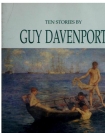The Autobiography of Ma-Ka-Tai-Me-She-Kia-Kiak, or Black Hawk - Black Hawk (howl and other poems TXT) 📗

- Author: Black Hawk
Book online «The Autobiography of Ma-Ka-Tai-Me-She-Kia-Kiak, or Black Hawk - Black Hawk (howl and other poems TXT) 📗». Author Black Hawk
We re-crossed the creek and I returned alone, going up the same ravine I came down. My brave went down the creek, and I, on raising the brow of a hill to the left of the one we came down, could plainly see the men at work. I saw a sentinel walking in the bottom near the mouth of the creek. I watched him attentively, to see if he perceived my companion, who had gone toward him. The sentinel stopped for some time and looked toward where my brave was concealed. He walked first one way and then the other.
I observed my brave creeping towards him, at last he lay still for a while, not even moving the grass, and as the sentinel turned to walk away, my brave fired and he fell. I looked towards the fort, and saw the whites were in great confusion, running wildly in every direction, some down the steep bank toward a boat. My comrade joined me, we returned to the rest of the party and all hurried back to Rock river, where we arrived in safety at our village. I hung up my medicine bag, put away my rifle and spear, feeling as if I should want them no more, as I had no desire to raise other war parties against the whites unless they gave me provocation. Nothing happened worthy of note until spring, except that the fort below the rapids had been abandoned and burned by the Americans.
Soon after I returned from my wintering ground we received information that peace had been made between the British and Americans, and that we were required to make peace also, and were invited to go down to Portage des Sioux, for that purpose. Some advised that we should go down, others that we should not. Nomite, our principal civil chief, said he would go, as soon as the Foxes came down from the mines.
They came and we all started from Rock river, but we had not gone far before our chief was taken sick and we stopped with him at the village on Henderson river. The Foxes went on and we were to follow as soon as our chief got better, but he rapidly became worse and soon died. His brother now became the principal chief. He refused to go down, saying, that if he started, he would be taken sick and die as his brother had done. This seemed to be reasonable, so we concluded that none of us would go at this time. The Foxes returned. They said, “we have smoked the pipe of peace with our enemies, and expect that the Americans will send a war party against you if you do not go down.” This I did not believe, as the Americans had always lost by their armies that were sent against us. La Gutrie and other British traders arrived at our village in the fall. La Gutrie told us that we must go down and make peace, as this was the wish of our English father. He said he wished us to go down to the Two River country to winter, where game was plenty, as there had been no hunting there for several years.
Having heard the principal war chief had come up with a number of troops, and commenced the erection of a fort near the Rapids des Moines, we consented to go down with the traders to visit the American chief, and tell him the reason why we had not been down sooner. When we arrived at the head of the rapids, the traders left their goods, and all of their boats with one exception, in which they accompanied us to see the Americans. We visited the war chief on board his boat, telling him what we had to say, and explaining why we had not been down sooner. He appeared angry and talked to La Gutrie for some time. I inquired of him what the war chief said. He told me that he was threatening to hang him up to the yard arm of his boat. “But” said he, “I am not afraid of what he says. He dare not put his threats into execution. I have done no more than I had a right to do as a British subject.”
I then addressed the chief, asking permission for ourselves and some Menomonees, to go down to the Two River country for the purpose of hunting. He said we might go down but must return before the ice came, as he did not intend that we should winter below the fort. “But,” he inquired, “what do you want the Menomonee to go with you for?”
I did not know at first what reply to make, but told him that they had a great many pretty squaws with them, and we wished them to go with us on that account. He consented. We all went down the river and remained all winter, as we had no intention of returning before spring when we asked leave to go. We made a good hunt. Having loaded our trader’s boats with furs and peltries, they started to Mackinac, and we returned to our village.
There is one circumstance that I did not relate at the proper place. It has no reference to myself or people, but to my friend Gomo, the Pottawattomie chief. He came to Rock river to pay me a visit, and during his stay he related to me the following story:
“The war chief at





Comments (0)